Talk to me
Nest Wifi
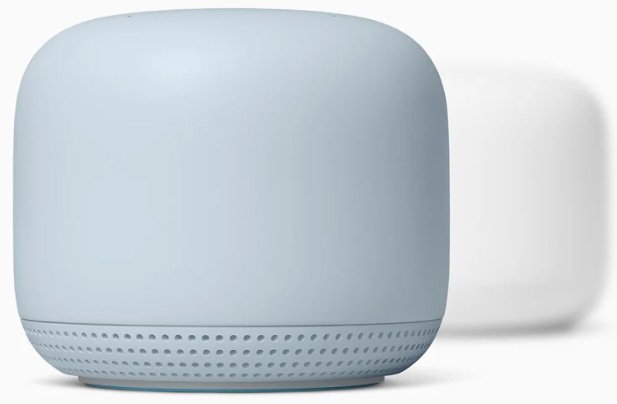
From $169 at Amazon From $169 at Best Buy From $169 at Walmart
Pros
- Beautiful design
- Google Assistant built-in to the mesh points
- Great tie-ins with Google Assistant and Google Home Routines
- WPA3 support
- AC2200 4x4 5GHz is wicked fast
Cons
- No wired backhaul
- Mesh point is slower than the router
- Limited QoS options
- One LAN port total
- Proprietary power cables on Router and mesh points
Nest Wifi is the second-generation mesh wireless system from Google. Aside from a major style change over the original Google Wifi, Nest Wifi includes a Google Assistant-powered speaker built into each mesh point. That ties in perfectly with the voice-controlled functionality and shows Google Nest's continued effort to make its devices helpful, not just smart.
Free VPN and more
Ubiquiti AmpliFi HD

From $184 at Amazon $349 at Best Buy (whole system) From $137 at Walmart
Pros
- Wired backhaul options
- Further coverage range
- Free VPN via Ubiquiti Teleport
- Adjustable mesh point antennas
- Mesh points plug directly into the wall
- Easy, customizable QoS
Cons
- No WPA3 support
- AC1750 is slower than the AC2200 on Nest Wifi
- No tie-ins for your favorite virtual assistant
Ubiquiti Networks has been in the game since 2005, and its products exude the professionalism and confidence that only experience brings. AmpliFi HD isn't a new product, but several software and firmware updates have kept this powerful mesh Wi-Fi system ahead of the game in several ways. These include a free VPN service for users that ensures security abroad by utilizing the AmpliFi HD router, not some remote server in a far-off land.
Google and Ubiquiti both offer incredibly compelling mesh Wi-Fi systems with their own sets of strengths, but there's also plenty these devices have in common. Neither of them is cheap, for one, with the base router itself retailing for about $150 on either side. Both systems are also incredibly versatile and can be easily scaled out with the addition of mesh points throughout your residence, all requiring no configuration on your part. So, which one is better for you? Let's break it down.
Nest Wifi vs. Ubiquiti AmpliFi HD Similarities and differences
Google and Ubiquiti recognize that most users are not going to want to log into their computers, navigate to some obscure IP address or hostname, and run through tons of configuration with their routers. Instead, both companies provide an app that makes configuration easy.
Each company's base package will offer Wi-Fi coverage throughout the vast majority of all residences, but Nest Wifi offers the least expensive way to cover 3,800 square feet with its router + point package, which retails for $289. For only 25% more, however, Ubiquiti's base package with two mesh points covers a far greater range — up to 10,000 square feet of Wi-Fi coverage. This retails for $349. Neither device supports the new Wi-Fi 6 standard, so you'll need to look elsewhere if this is an essential feature to you.
There are also big feature differences to be considered. Do you already have a bunch of Google Nest devices in your home? Nest Wifi might be a better buy then, as the deep integration with Google Home and Google Assistant mean that you can turn off Wi-Fi to your kids' devices at dinner time by just asking Google.
Ubiquiti, on the other hand, is focusing more on users who enjoy added security both at home and abroad. It offers up a greater range of QoS functionality (for prioritizing traffic to certain devices and services), as well as a free VPN solution that utilizes your home router to create a secure pipeline through the Internet to your phone.
| Nest Wifi | Ubiquiti AmpliFi HD | |
|---|---|---|
| Router dimensions | 4.33" x 3.56" diameter | 3.91" x 3.85" x 3.92" |
| Mesh point dimensions | 4.02" x 3.43" diameter | 9.60" x 2.13" x 2.27" |
| Router antenna configuration | 4 x 4 (5GHz), 2 x 2 (2.4GHz) | 3x3 (5GHz and 2.4GHz) |
| Mesh point antenna configuration | 2 x 2 (5GHz and 2.4GHz) | 3x3 (5GHz and 2.4GHz) |
| Speed | AC2200 | AC1750 |
| Rated coverage for two-point system | 5,400 square feet | 10,000 square feet |
| Wireless security | WPA3 | WPA2 |
| Wi-Fi 6 support | No | No |
| LAN ports | 1 | 4 |
| QoS | Limited to one device | Prioritize many devices |
| Parental controls | Yes | Yes |
| Built-in VPN | No | Yes |
| Virtual assistant support | Yes | No |
| Price (router + 2 points) | $349 | $339 |
| Available colors | Sand, Snow, Mist | White (black only for gamer edition) |
Nest Wifi vs. Ubiquiti AmpliFi HD Speed or range?
The comparison between these two routers isn't quite as cut and dry as it may seem. Nest Wifi features an AC2200 radio with a 4x4 MIMO antenna setup for the 5GHz channel, and a 2x2 MIMO antenna setup for the 2.4GHz channel. Ubiquiti's AmpliFi HD, however, boasts a 3x3 MIMO setup for both channels over an AC1750 signal. Nest Wifi will offer faster speeds to 5GHz devices that are in range of the router, but AmpliFi HD offers better 2.4GHz speeds and coverage.
Nest Wifi will offer faster speeds to 5GHz devices that are in range of the router, but AmpliFi HD offers better 2.4GHz speeds and coverage throughout the home.
The Nest Wifi mesh points feature a 2x2 MIMO antenna configuration for both channels, while AmpliFi HD's mesh points are a 3x3 MIMO configuration. That means out of the box in the default configuration, AmpliFi HD's mesh points will offer greater speeds and coverage to any device connecting to them.
The tricky part comes when pairing two routers together instead of using mesh points. While mesh points are a more conventional way of extending the network out, users may opt for spending a little more money and getting a second router instead of a mesh point. In Nest Wifi's case, this is the best way to get both range and speed, as each router is capable of covering 2,200 square feet.
AmpliFi HD's mesh points will offer greater speeds and coverage to any device connecting to them.
That's some pretty specific use-case differences. Basically, Nest Wifi will offer faster speeds while connected to the router at 5GHz, while Ubiquiti AmpliFi HD will provide more consistent speeds throughout your home.
In terms of raw coverage, AmpliFi HD wins big in this category. It provides a setup that reaches further without spending additional cash. To compare, this same setup with Nest Wifi is rated for half the space. While it's not likely most users will need this kind of range, it's important to note that folks who do need the extra range should choose AmpliFi HD for their mesh solution.
Nest Wifi vs. Ubiquiti AmpliFi HD How important are individual devices?
It's not just the design of the two routers that's vastly different. It's also the philosophy of what you need to be connected in your home that differs. On the back of the Ubiquiti AmpliFi HD, you'll find a total of four LAN ports for plugging in various devices. This could be a desktop computer, smart TV, or other appliance that just functions better via a wired connection. Nest Wifi, on the other hand, only offers a single LAN port for wired device connectivity.
QoS, or Quality of Service, refers to any technology that manages data traffic to reduce packet loss, latency, and jitter on the network. In plain language, your router should be prioritizing Netflix streaming over downloading random files on a computer. Like many things, Google automates this process and offers minimal user customization. Google will automatically prioritize bandwidth-intensive services, like its own Google Stadia gaming service. Still, you may only manually prioritize traffic for a single device for up to four hours at a time.
Ubiquiti handles QoS differently, and it starts with wired devices. As mentioned above, AmpliFi HD has four LAN ports, and all devices connected to these LAN ports get automatic traffic prioritization over wireless clients. Beyond that, users can select any wireless clients and assign them one of three priorities for their traffic: Gaming, Streaming, and Normal. Gaming gets the highest priority since it's very dependent on the lowest latency to get the best performance. Streaming is next since bandwidth is vital for quality HD and 4K content. Everything else defaults to Normal.
Ubiquiti AmpliFi HD also offers the ability to wire more than one router together for the best coverage and performance. This is known as wired backhaul, and it works best because of the above QoS functionality. Wiring up two routers is a niche functionality, but if you are looking to use two routers to create a mesh network instead of the wireless mesh points, AmpliFi HD provides the best way to do this.
Nest Wifi only supports multiple routers via wireless pairing, which can be achieved by purchasing this two-pack on Amazon for $299. This provides the fastest 5GHz support of either router by utilizing that faster AC2200 4x4 MIMO antenna configuration on Nest Wifi instead of the slower 2x2 MIMO antennas in the Nest Wifi Point.
Nest Wifi vs. Ubiquiti AmpliFi HD Fancy mesh points
We've discussed the design differences, but the mesh points offer even more differences. Nest Wifi packs a Google Assistant-powered speaker into its mesh point and gives it a similar style to the Nest Wifi Router, albeit in a tad smaller size. Being a Google Assistant-powered speaker makes this mesh point handy since it can be used to issue commands or just as an extension of your already-existing whole-home audio solution within the Google Home app.
A snazzy colored LED ring sits underneath the unit and illuminates the surface its placed upon when voice commands are issued. The Nest Wifi Mesh Point utilizes a proprietary "Barrel jack" power plug that sits at the end of a 10-foot-long cable. This gives a bit of slack to place the speaker on a shelf and better display it since the unit looks rather nice, and could even play a part in enhancing the Wi-Fi signal strength since it's more likely to be out in the open rather than hidden behind something.
AmpliFi HD's mesh points are a little less "home decor" and a little more "techy." This tall spire of a mesh point plugs directly into any power outlet and needs no cable, ensuring that you'll never be able to lose the cable. The antenna portion of the mesh point sits on a magnetic swivel base and can be turned almost 90 degrees downward and rotated nearly 180 degrees around the base. This makes for enhanced coverage in odd situations where an immovable antenna configuration would provide lower signal strength. While it's less pleasant to behold, it's more versatile for its designated purpose.
Nest Wifi vs. Ubiquiti AmpliFi HD The security game
Nest Wifi debuted with WPA3 support for wireless devices, but not Wi-Fi 6 support. Neither device supports Wi-Fi 6, but the inclusion of WPA3 puts Nest Wifi one step ahead of Ubiquiti's AmpliFi HD for devices that support the new wireless encryption standard. Ubiquiti stated that they're looking into the possibility of adding WPA3 support in a future firmware update, but that was several months ago, and there's been no word since. Until then, Nest Wifi wins here.
Almost all new smartphones and wireless devices support WPA3, which offers better security when transmitting wireless data. Having tighter wireless security is particularly important if you live in more densely populated housing, like in an apartment or condo, as you'll have more people in your vicinity able to see and potentially snoop on your wireless traffic.
Nest Wifi vs. Ubiquiti AmpliFi HD VPN or VIP?
Having a Nest speaker built into the Nest Wifi Point is one of its most unique selling points. On top of that, many of Nest Wifi's biggest features can be controlled via voice, meaning you won't even need to pull out your phone to turn off Wi-Fi for your kids' devices at dinner time — just ask Google to do it, instead. Shutting off Wi-Fi and issuing a "dinner's ready" broadcast across the Google Assistant-powered speakers in your home is probably one of the coolest ways to get the family together.
While this functionality is cool, the same functionality can be performed in AmpliFi HD's app, albeit with a few more clicks. Using your voice is undoubtedly easier, but the concept of turning off Wi-Fi to specific devices can be done with both of these routers.
Ubiquiti offers something unique to the AmpliFi HD router: a free VPN solution called Teleport. Imagine sitting in a cafe and connecting to the Wi-Fi, only to find out there's no encryption and all your data could easily be accessed by anybody sitting nearby. That's why we always encourage the use of a VPN while computing remotely, especially when connecting to hotspots.
If you have an AmpliFi HD router, this functionality is built right in, and all you'll need is the Teleport app, which will securely encrypt the wireless connection on your phone, no matter where you're connected, by creating a secure tunnel from your phone to your home's router. Only the router knows how to decrypt the information that goes through this tunnel. It ensures that you not only have a secure connection while out and about but that you won't have to pay anything extra for it either.
This is a particularly big deal since VPN services tend to require a subscription. Using a remote VPN also increases your chances of data theft, however unlikely they may be, as your phone's traffic feeds through a server somewhere else. With AmpliFi HD, you know exactly where that data has been, and that's something Nest Wifi simply doesn't offer.
Nest Wifi vs. Ubiquiti AmpliFi HD And the winner is…
While Nest Wifi offers a compelling way to control the router with Google Assistant, Ubiquiti's inclusion of a free VPN, as well as greater QoS options and more consistent speeds throughout the home, make it a better product in the end. WPA3 isn't available on AmpliFi HD at this time, but a firmware update could add it in the future. WPA3 is becoming more important now that devices are actually shipping with support, so this could be a killer feature if you live in an apartment.
AmpliFi HD's extended range combined with its consistent speed across mesh devices also gives it a big advantage over Nest Wifi. It also offers much greater control over individual devices connected to your router, a key to enhancing local security by preventing rogue devices from staying connected to your router, or just for better regulating Internet connectivity to multiple devices at once.
That free VPN feature might be the single greatest advantage of AmpliFi HD, though. It provides users with a VPN they can utilize on their smartphones to secure their connection while away from their homes. Considering most reputable VPN services require an additional subscription cost per month to use and still run the risk of sending your data through someone else's servers, such a free service alone is worth the value of the router itself.
Security at home and afar
Ubiquiti AmpliFi HD

Far-reaching mesh Wi-Fi
From $184 at Amazon $349 at Best Buy (whole system) From $137 at Walmart
There's almost no home that a Ubiquiti AmpliFi HD won't cover. Aside from covering your entire home with fast Wi-Fi, Ubiquiti's free Teleport VPN service utilizes your home router as a way to securely encrypt your smartphone's Internet connection while you're out and about.
Google Assistant for your Wifi
Nest Wifi

Extend your range and your voice
From $169 at Amazon From $169 at Best Buy From $169 at Walmart
Nest Wifi is a superb upgrade from the original Google Wifi in just about every way. From the sleek new design that fits better with your home decor, to the enhanced software functionality, this is one of the easiest ways to get whole-home Wi-Fi coverage. The mesh point network extender also features a huge redesign, including a Google Assistant-powered speaker built right into its base.
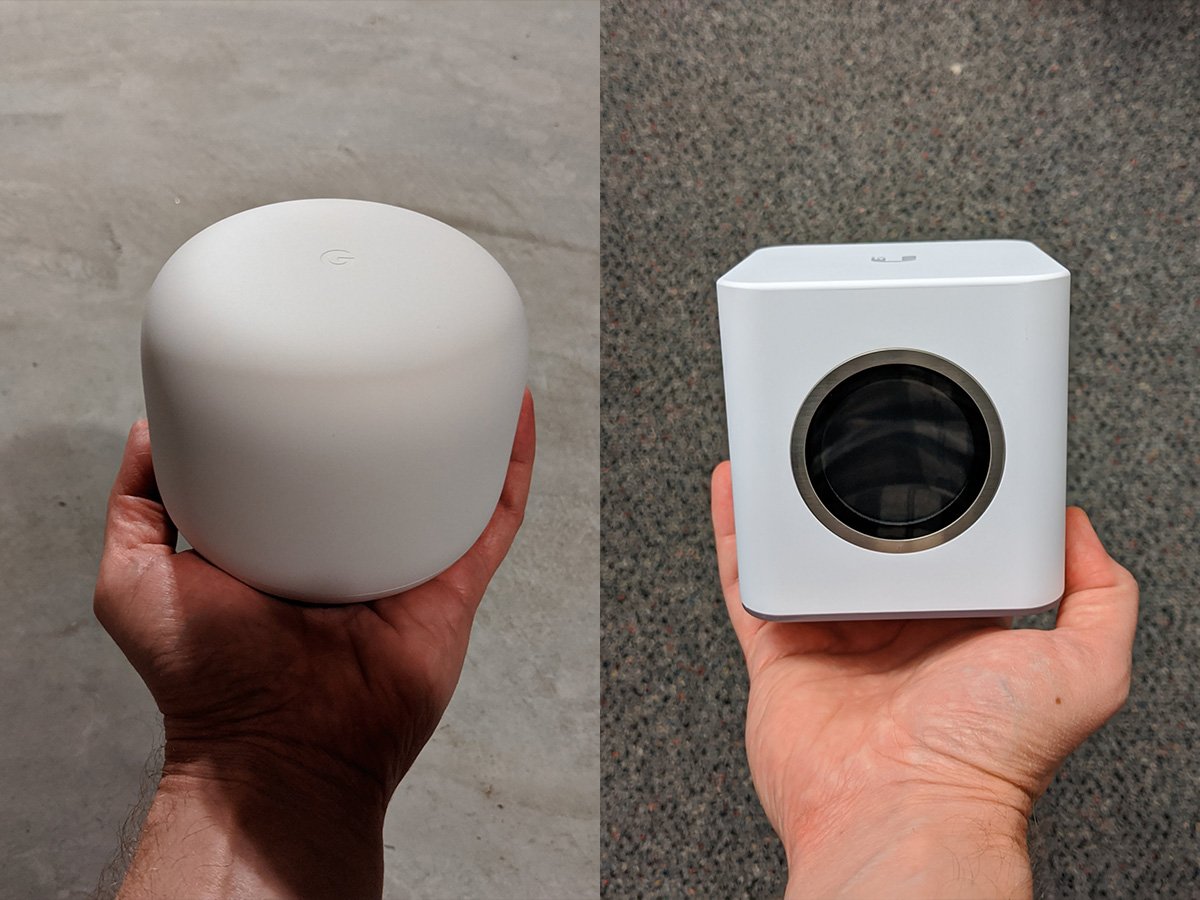
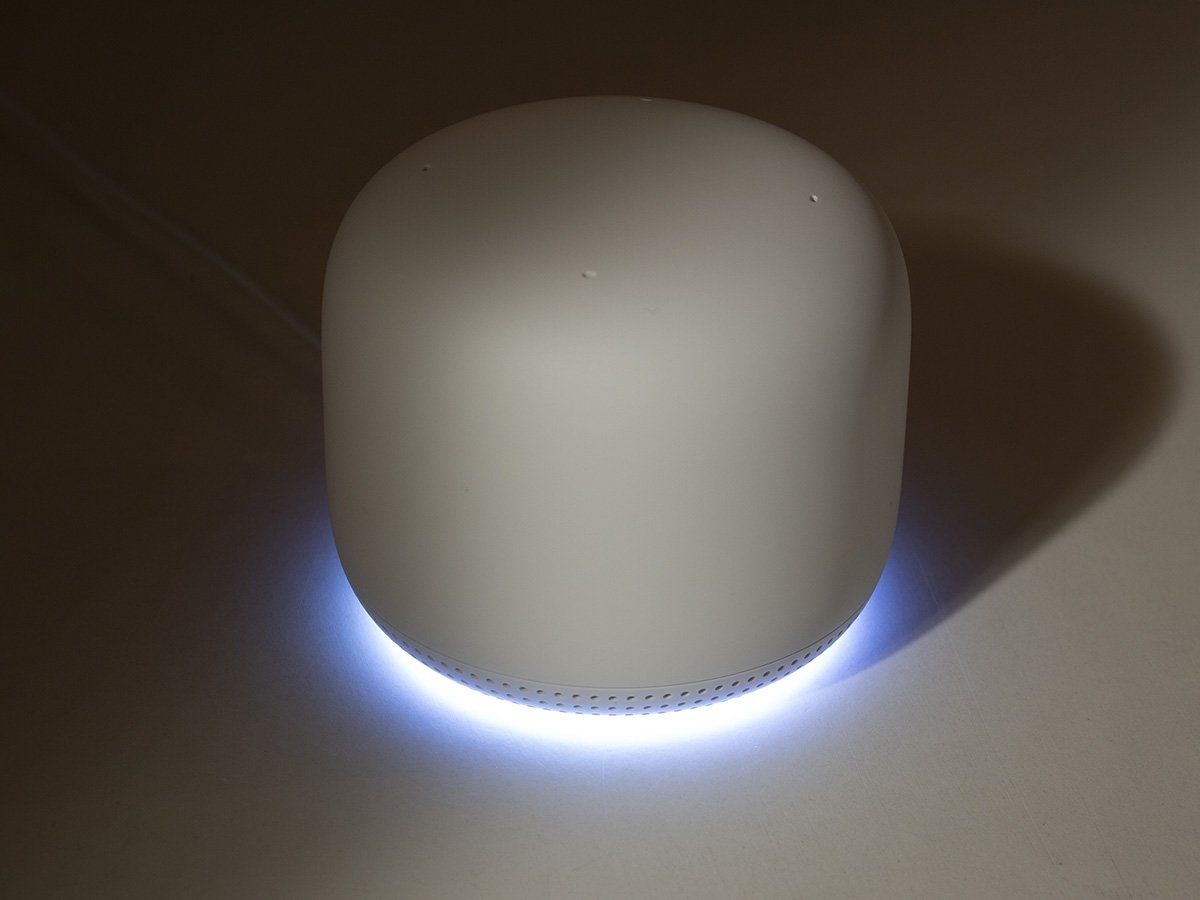
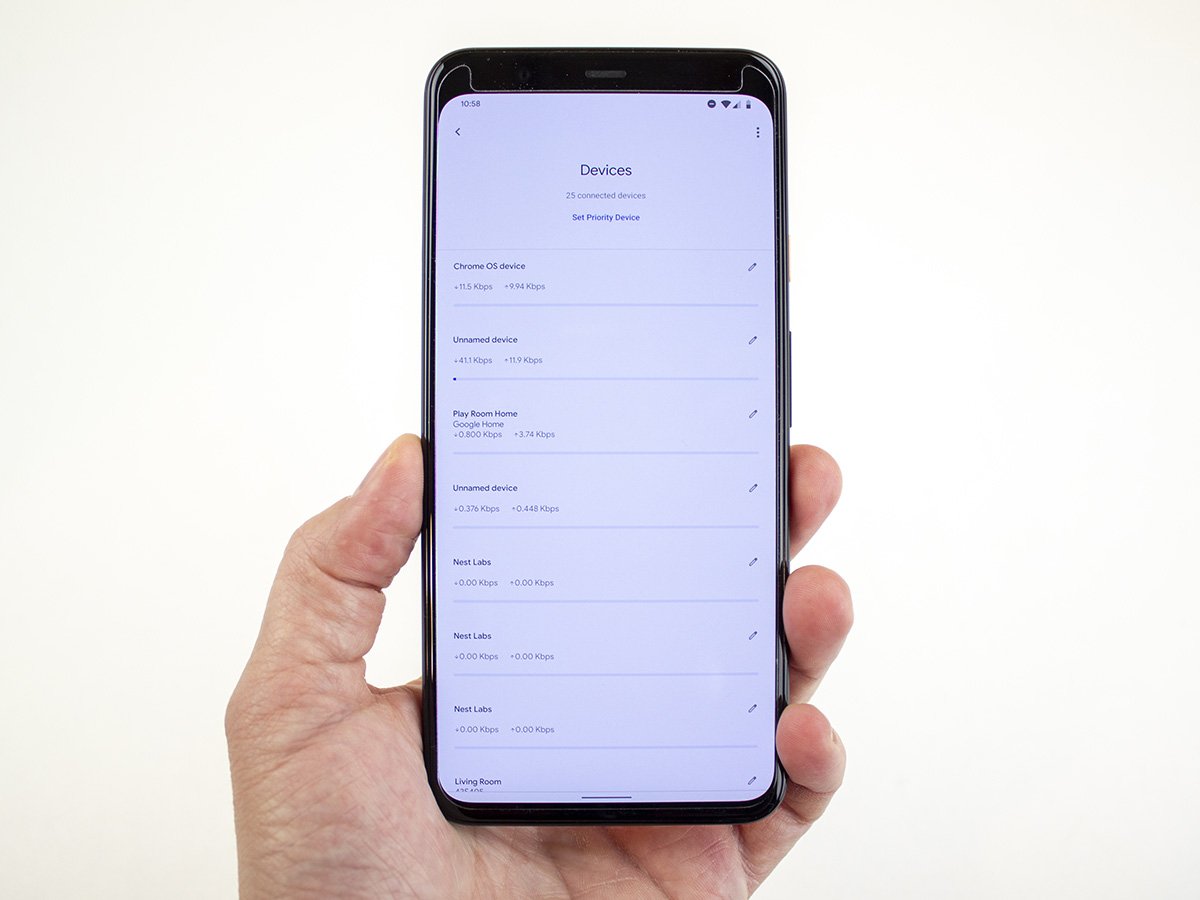
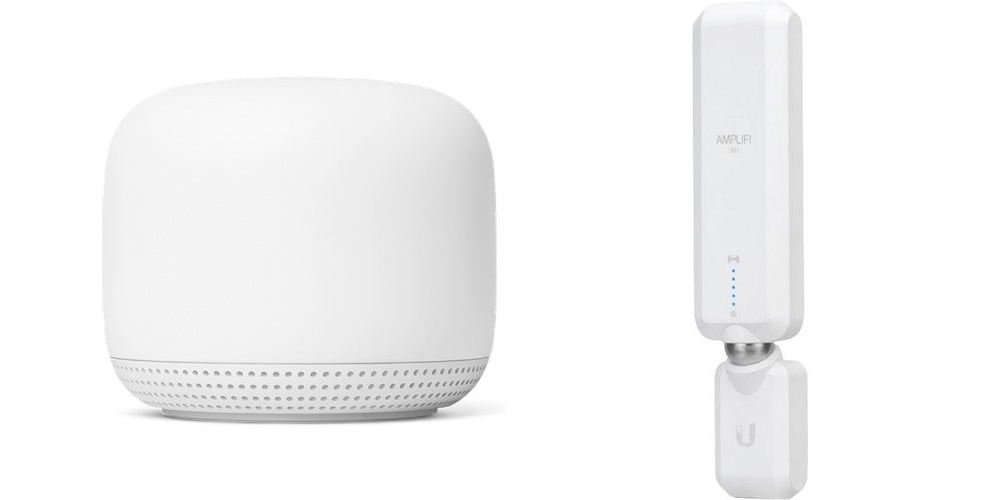
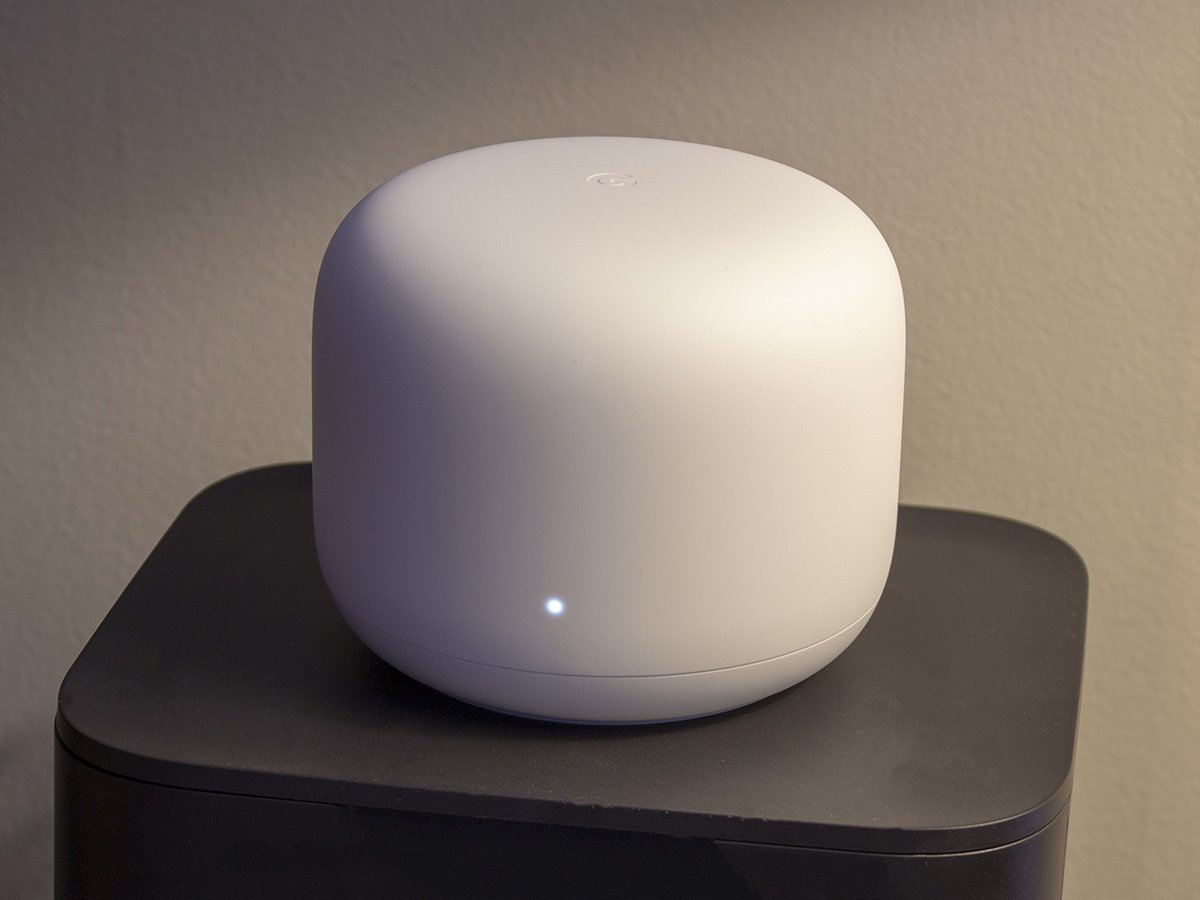
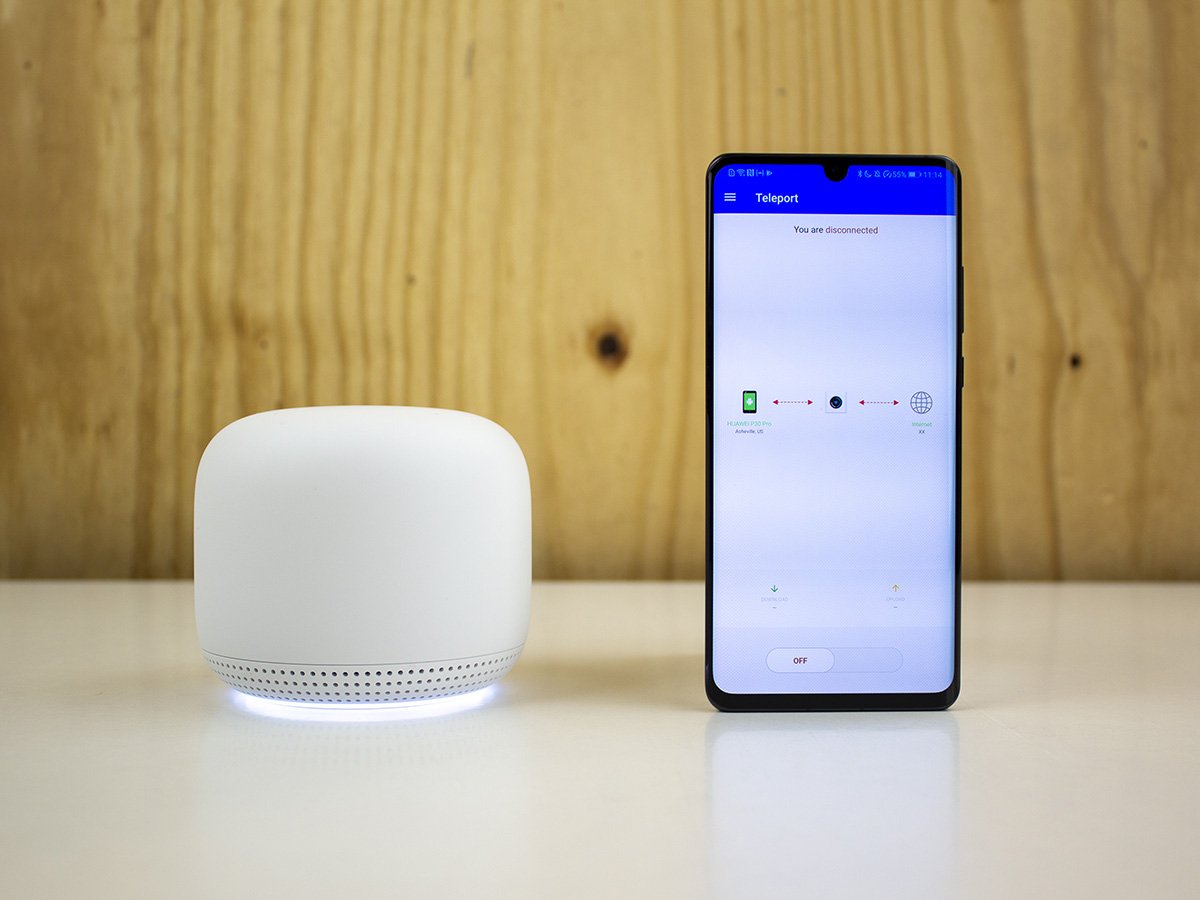
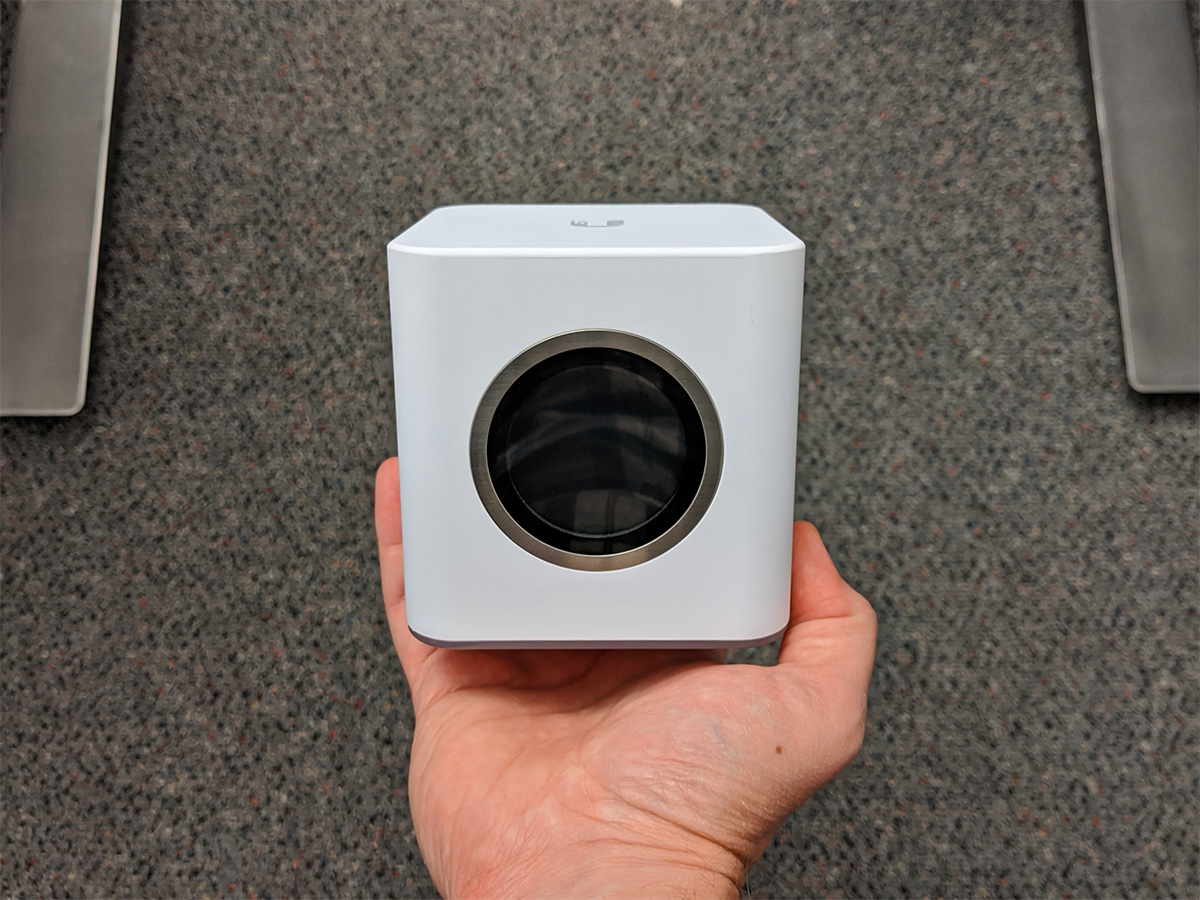
0 Response to "You Can See More: Nest Wifi vs. Ubiquiti AmpliFi HD: Which should you buy?"
Post a Comment